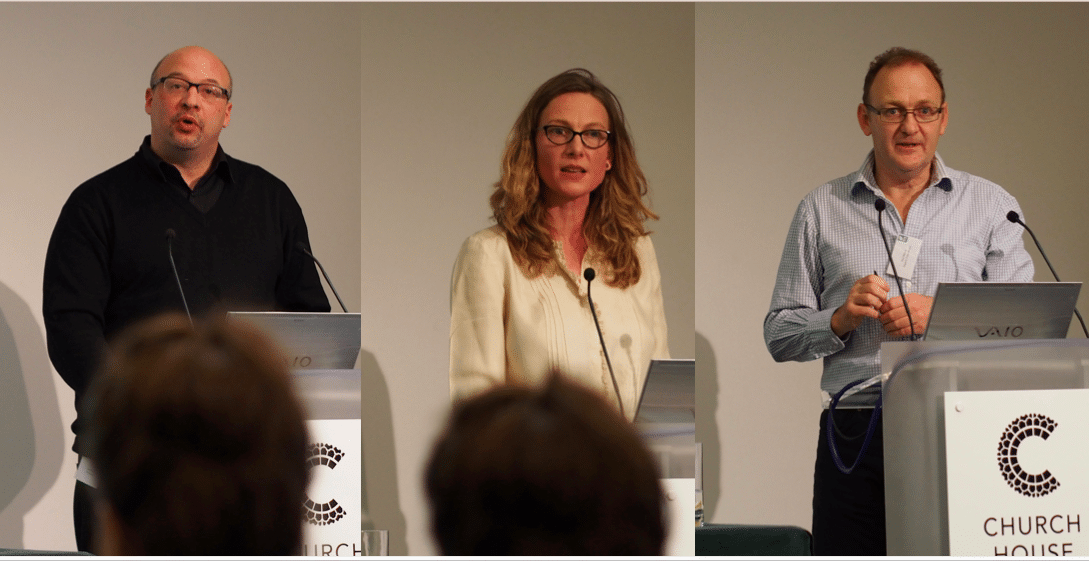The under 35s are the “most engaged and active” organic consumer demographic, new research commissioned by the Organic Trade Board (OTB) shows.
The research, undertaken by HPI and presented this week at the OTB’s Annual Pledgor’s Briefing, suggests that “all signs point to the Millennials (people born between the early 1980s and early 2000s)”.
Presenting the findings, HPI’s Daniel Lewis said: “We’ve been conducting research into the organic consumer since 2011 and this year it has become clearer than ever that younger consumers, those under 35, are now the most active and engaged. 78% of Millennials say that organic is important, compared to 49% of their parents. So the sector really has to capitalize on the high level of interest from younger consumers.”
“the sector really has to capitalize on the high level of interest from younger consumers”
The findings also show that while there are many buying influencers for organic, a ‘trinity’ of three key virtues – ‘tastes fantastic’, ‘healthier for you’ and ‘is worth it’ – should be the focus for the sector
Price remains a barrier, said Lewis, but it can be overcome “if the trinity is believed”. Looking at attitudes, this year’s research shows a drop in the number of consumers who say that organic is expensive – down from 87% to 79%. “The perception that organic represents value is growing,” he added. There was also an increase in the belief that organic ‘tastes fantastic’ – up from 63% to 79% – while those who thought organic ‘is worth it’ went up from 62% to 77%.
This latest consumer research was the backdrop for an update on the ‘Organic. Naturally Different’ campaign as it moves into its fifth year. Recapping on 2015 activity, OTB’s Catherine Fookes said that the campaign had reached 39% of organic consumers through a mix of print advertising, billboard and bus stop ads, social media and PR activity. The creative theme – combining humour with compelling messaging – was liked by a high proportion of organic consumers and the last campaign burst was recalled by 40%, the highest level to date.
 In 2016 the campaign becomes national, with a stronger emphasis on digital channels. A new initiative – #OrganicUnboxed – will see organic food boxes, together with organic information packs and recipes, sent to top bloggers and other opinion formers.
In 2016 the campaign becomes national, with a stronger emphasis on digital channels. A new initiative – #OrganicUnboxed – will see organic food boxes, together with organic information packs and recipes, sent to top bloggers and other opinion formers.
Videos will form a larger part of the mix in 2016. These will include one with top food and lifestyle blogger Madeleine Shaw, three films featuring ‘Great British Chefs’ and a further three made with the Food Network. Among other uses the videos will feature as ‘skipable’ YouTube ads, a cost-efficient way to reach target audiences.
Blogger engagement more generally will increase in 2016 to reflect the interests of younger organic consumers, while traditional print media messages will concentrate on the ‘organic is worth it.
After the interest created at last year’s OTB event by Thor Jørgensen, chief operating officer at Denmark-based discounter Netto, one of the most anticipated speakers at this year’s event was Henrik Hindborg from Organic Denmark.
 Hindborg showed how, by working closely with retailers, brands, consumers and Government, Organic Denmark had moved organic’s market share from a very respectable 2.9% to a world leading 7.6%. A key plank of its activity has been working with major retailers, moving organic underperformers into the higher performing category. “It really helps that we can show that organic consumers are attractive consumers, loyal and less price sensitive. It’s amazing what happens when you tell CEOs how many sales they are missing out on!”
Hindborg showed how, by working closely with retailers, brands, consumers and Government, Organic Denmark had moved organic’s market share from a very respectable 2.9% to a world leading 7.6%. A key plank of its activity has been working with major retailers, moving organic underperformers into the higher performing category. “It really helps that we can show that organic consumers are attractive consumers, loyal and less price sensitive. It’s amazing what happens when you tell CEOs how many sales they are missing out on!”
“When it comes to organic basics, calculate prices as you would for other basic products. Organic is not a niche and it should not be considered premium or luxury”
Hindborg had some advice on pricing and positioning. “When it comes to organic basics, calculate prices as you would for other basic products. Organic is not a niche and it should not be considered premium or luxury. I’d suggest placing attention to lower prices on organic products that have a high relevance to families.”
He repeated the view of Netto’s Thor Jørgensen, that where and how organic products are merchandised has a strong bearing on sales. All experience in Denmark had showed that a dedicated organic block was the most successful strategy. “When a retailer switches from side-by-side or individual category blocking to a whole organic section, they see sales increase by 15% pretty much every time”.
“When a retailer switches from side-by-side or individual category blocking to a whole organic section, they see sales increase by 15% pretty much every time”
OTB chair Paul Moore said that the UK organic sector had come a long way since the organization had been formed, and the first phase of its organic consumer campaign launched in 2011. “We’re on a rising tide, organic sales and consumer awareness and interest are on the up and we want the final year of the current campaign to go out with a bang.” He urged any companies who had not yet pledged cash support for the next phase of the EU-backed campaign to get in touch quickly. He said that a change of rules meant that the EU would back every £1 raised by industry with £4, creating a “game-changing” opportunity for the current joint UK-Demark bid.
Jim Manson





